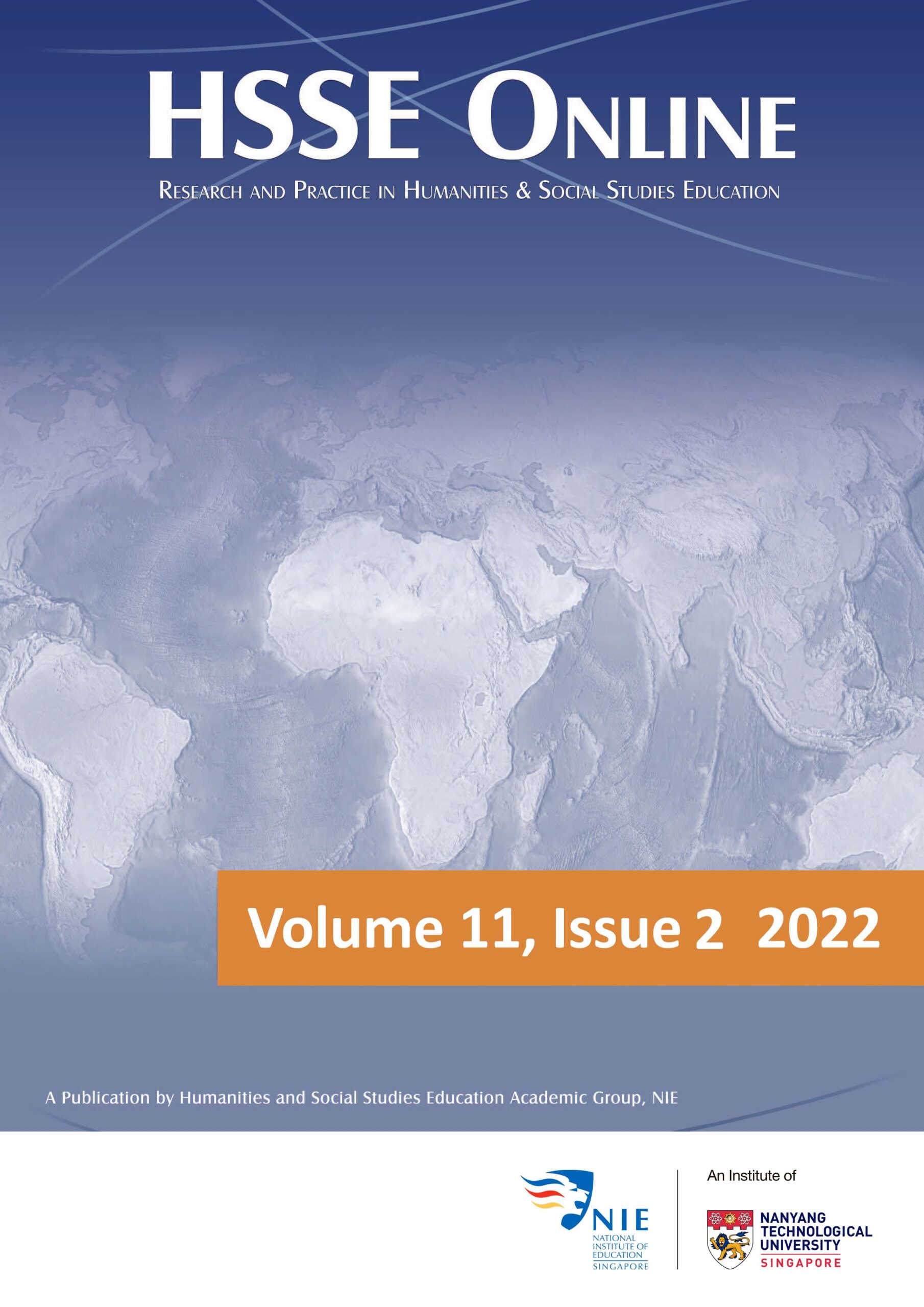Editors’ forward for HSSE’s special issue on sustainability
This special edition of HSSE Online places the spotlight on the overarching themes of sustainability, sustainable development and sustainability-related pedagogies. The eight articles in this edition run along two key strands, with the first one attending to the (un)sustainable use of resources. Ayshathun Munavvara expounds on the the over-extraction of groundwater for irrigation purposes near Tonle Sap (a lake in Cambodia), while Jean Lim stresses the excessive use of disposable plastics and exceedingly low rates of plastic recycling in Singapore (i.e. 4%, NEA 2022). Meanwhile, Karina Lalchand Sheri (2022a) investigates the extent to which run-of-river mega dams in the Amazon are more sustainable (and less disruptive to river morphology) compared to their traditional counterparts (with large reservoirs).
The second strand evident in this volume considers the intersections between climate change (education) and (environmentally) sustainable practices. Jean Lim and Goh Xin Fang discuss the content knowledge and necessary attitudes that educators ought to possess in order to meet the learning objectives of climate change education in Singapore’s secondary schools. Jean Lim is concerned about how well-equipped pre-service (student) teachers are with the rudiments of plastic recycling, whereas Goh Xin Fang is eager to know what in-service Chemistry teachers think and do about climate change education in their lessons. In her second article, Karina Lalchand Sheri (2022b) foregrounds thoughtful measures that teachers deploy to alleviate climate-change induced heat stress in their schools. Finally, Colin Leong and Ong Zhi Qing are enthusiastic about the pedagogical affordances of digitally-enabled learning vis-à-vis Adva (a carbon calculator smart-phone application) and game-based learning vis-à-vis Getting to zero (a physical card game developed locally on getting to zero carbon emissions) respectively. While monitoring one’s carbon footprint through the use of Adva promotes carbon light living on an individual scale, Getting to zero focuses on the same pressing issue but on a national/institutional scale.
More crucially, these articles (in)directly shed light on an often neglected aspect of purportedly environmentalist and/or sustainable practices — that of sustaining them, as opposed to piece-meal, tokenistic or perfunctory attempts at doing so. For instance, Karina Lalchand Sheri (2022b) is at pains to emphasize that technocratic responses (e.g. air-conditioning) to climate change induced challenges (e.g. thermal discomfort from warming) are rarely good long-term solutions, and often create other problems (e.g. more carbon emissions, financial cost). Moreover, Jean Lim and Goh Xin Fang imply that taking climate change education and eco-stewardship seriously entail enhancing teacher competencies not just for pre-service but also in-service teachers, with consistent opportunities for professional development.
Taken together, we argue that this special issue centred around the politics of sustainability (education) puts forth two main pedagogical insights which may be helpful to educators. First, these articles emphasize the significance of site specificity (i.e. its geographical, socio-cultural context), and that endeavours to implement mitigating measures or other alleged ‘solutions’ to environmental problems must also take into account their structural or locational constraints. With reference to Ayshathun Munavvara’s article on unsustainable rates of groundwater extraction (thereby leading to land subsidence in/around Tonle Sap), placing and enforcing limits on extraction may appear to be a logical strategy to undertake but this would mean ignoring Cambodia’s equally urgent need for agricultural intensification to meet a rising demand for food. Likewise, in spite of the ecological damage that mega-dam building might inflict on the physical landscape, Karina Lalchand Sheri (2022a) acknowledges that they meet the demand for a relatively cheap and renewable source of energy. In other words, both of these articles illustrate various competing dimensions of sustainable development (especially in developing economies) whereby economic sustainability may be privileged over environmental sustainability. In the same vein, Singapore’s plan for reducing its carbon emissions as a whole (which can be gleaned from Ong Zhi Qing’s introduction in Getting to Zero) reveals the state’s penchant for rationalist-technocratic approaches is primarily limited to the maximisation of energy efficiency and the advancement of cleaner technologies.
Second, several of these articles are generally heeding calls in the scholarship on sustainability-driven/environmental education for augmenting sustainability competencies among learners, and experimentations with innovative pedagogies among educators (see Papenfuss et al. 2019). Ong Zhi Qing’s focus on game-based learning and Colin Leong’s emphasis on digitally-enabled learning depart from traditional modes of teaching and learning that are more didactic. Both of them aver that the interactive nature of games and applications render them more engaging which in turn contributes to better learning.
Further, Tan Qian Hui and Tricia Seow observe that critical thinking appears to be one of the most commonly cited sustainability competencies in the literature for living in our contemporary world caught up in a climate crisis. The issues that the contributors to our special issue have dealt with such as (water) resource and (plastic) waste management are amenable to pedagogical manoeuvres that favour active inquiry, perspective-taking, evaluative thinking and reflexivity, which are all elements of criticality. Our hope is that the cultivation of critical literacies in the sustainability education classroom can be the foundation for inciting environmentalist action while facilitating the emergence of socially just forms of sustainable societies in time (see Focht et al. 2019).
References
Focht, W., Reiter, M. A., Barresi, P. A., & Smardon, R. C. (Eds.). (2018). Education for sustainable human and environmental systems: from theory to practice. Routledge: London.
Papenfuss, J., Merritt, E., Manuel-Navarrete, D., Cloutier, S., & Eckard, B. (2019). Interacting pedagogies: A review and framework for sustainability education. Journal of Sustainability Education, 20, 19.
Tricia Seow, Diganta Das, Tan Qian Hui
Singapore
September 2022

